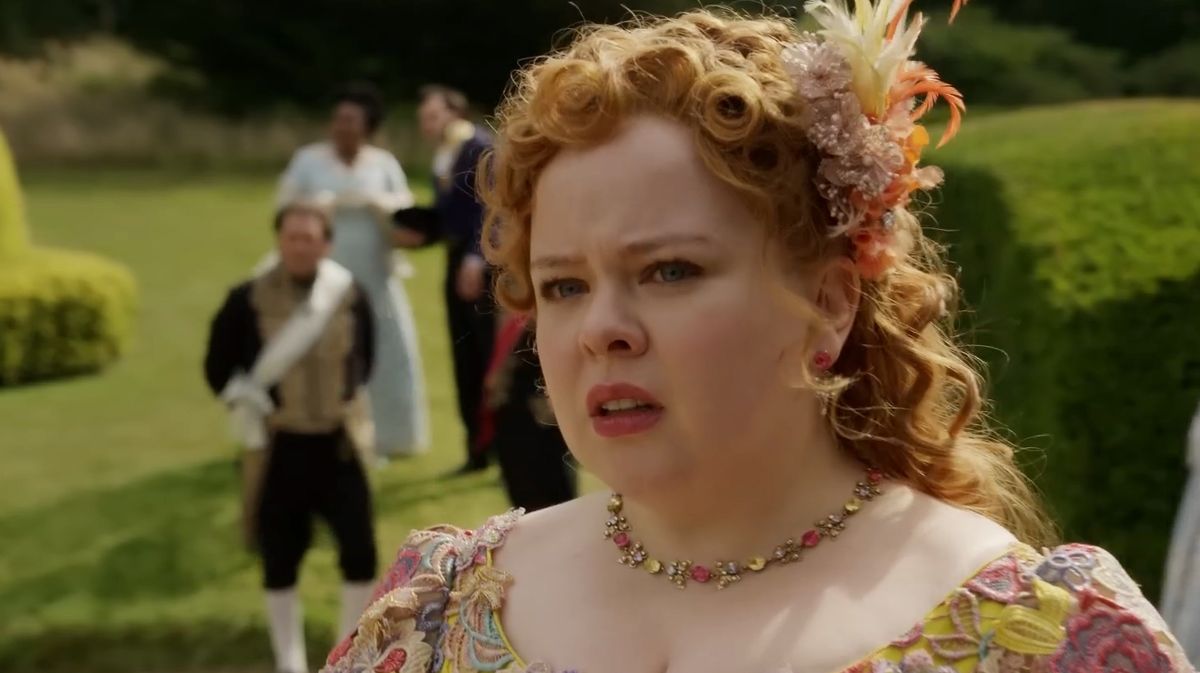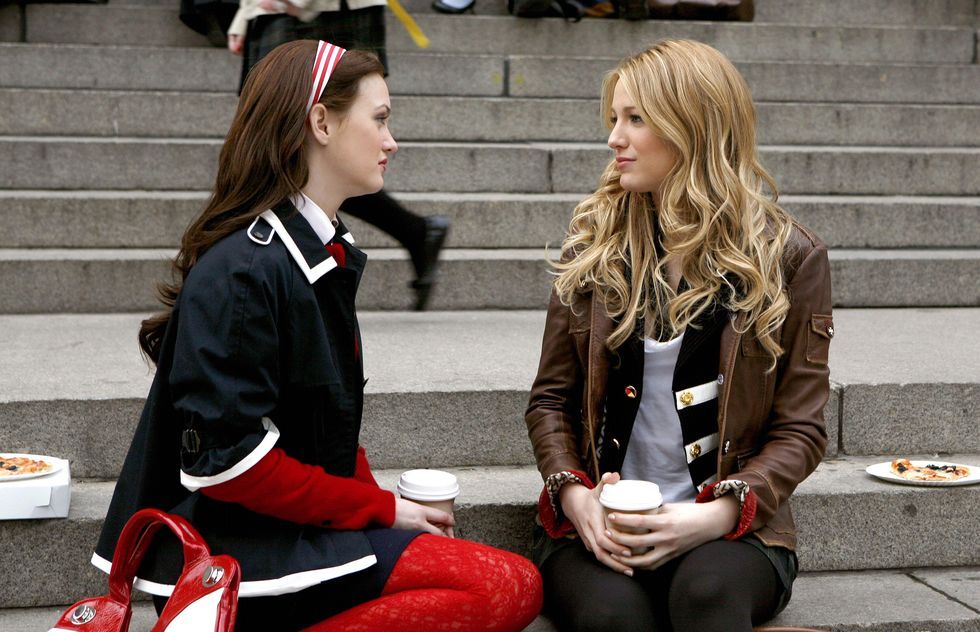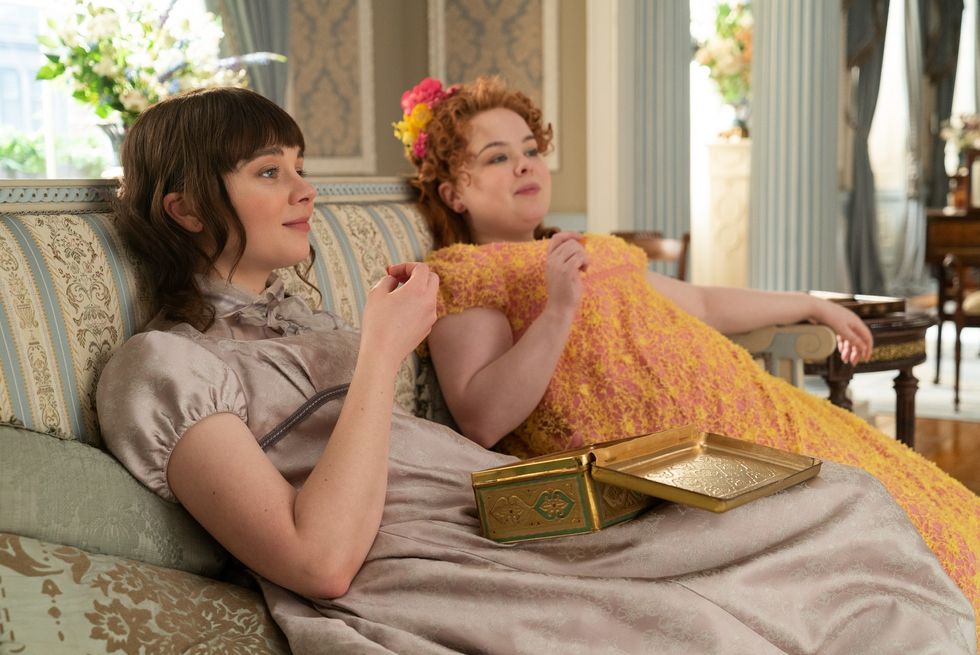This is why everyone loves a good gossip
Gossip gets a bad rap. In Bridgerton, returning for its third series on 16 May, it’s the cause of take-downs, break-ups and heartbreak, with the author of the popular society papers, Lady Whistledown, effectively playing god. At the end of season two, Eloise Bridgerton discovered that the identity of this mysterious writer was none other than [spoiler alert] her best friend Penelope Featherington, with their friendship now understandably in tatters. No one wants to be friends with the local gossip – particularly when she’s ruined so many lives with her truth bombs.
Gossip is defined by the Oxford English Dictionary as, “informal talk or stories about other people’s private lives, that may be unkind or not true”. It’s this that lends it its negative connotations, with the suggestion that gossiping is spiteful and inaccurate. Yet gossip can also be a positive thing. Take this for an example: if you spoke to your friend about another acquaintance’s engagement, that would be gossip, but it’s not negative or untrue.

“It’s a common misunderstanding that there’s only a negative motivation to gossip, to hurt someone, or someone’s reputation,” shares Dr. Francesca Giardini, associate professor of Sociology at the University of Groningen. “But gossip is often very neutral. It can be a way to create a bond with someone. When you meet someone new, and you have a friend in common, you might talk about them to emphasise your common ground, for example.”
Dr. Giardini is the co-editor of the book The Oxford Handbook of Gossip and Reputation, with her colleague Dr. Rafael Wittek, which looks at how behaviour within society is governed by gossip. “What interested me was the clash between how many positive things gossip can do for individuals and societies and how bad its reputation is,” she shares. “Everybody thinks that gossip is malicious. Many think that spreading negative information about others is the very definition of gossip, but that’s not true.” Dr. Wittek agrees: “The disruptive consequences of gossip are why we see it as negative.”

COURTESY CW
Leighton Meester and Blake Lively in Gossip Girl
It’s certainly the way that it’s been portrayed in pop culture. Take Gossip Girl, for example, in which the venomous anonymous blogger plays puppet master of the Upper East Side. Or the 2000 psychological thriller, Gossip, where a group of students decide to spread a lie to see how much it changes via Chinese whispers, leading one girl to believe she has been raped by her boyfriend. Being “a gossip” is also stereotyped as a bad thing, whether that’s Regina George in Mean Girls and her Burn Book, tragic Moaning Myrtle in Harry Potter, or indiscreet Lydia Bennet in Pride and Prejudice.
It’s worth noting too that gossiping is inherently gendered as female, whether that’s a middle-aged character on a soap or trashy magazines targeting women readers. Men have conversations; women gossip. Even male gossip columnists are often referred to as diarists, but the 3am girls, they were definitely gossips. Indeed, it’s why the revelation that Gossip Girl’s anonymous villain was not a girl at all, but a man, was so shocking. So why is this? “One theory is that it’s a way to discredit an activity that is almost impossible to control,” shares Dr Giardini. “Since it’s not possible to stop it, we portray it in a negative light.”

NETFLIX
Claudia Jessie and Nicola Coughlan in Bridgerton
In his 1996 book, Grooming, Gossip and the Evolution of Language, the anthropologist Robin Dunbar argued that the ability to talk about an absent third person actually led to the growth of language as we know it. He draws parallels between grooming in chimpanzees and gossiping in humans, showing that this “idle talk” is what gives humans a society. We’d have little need for it if we were solitary animals, after all. Researchers have found that between 65 and 85 per cent of all conversation is actually gossip.
And there are benefits to gossip, not least in modifying social behaviour for the better. “Gossip is very important for group cohesion,” explains Dr. Giardini. “One of the most common uses of gossip is to inform outsiders or newcomers to a group about the rules or conventions of that group.” In this way, we gossip for guidance on how to live like others, to learn what is and is not acceptable in society. It’s a form of moral enquiry. Gossiping in the workplace then can also have positive as well as negative outcomes. “When people are in a gossip culture then this increases performance because people are worried others will talk about them,” adds Dr Wittek.
So next time you’re having a good old chin-wag with a friend about someone else, don’t feel bad – it’s just gossip.





